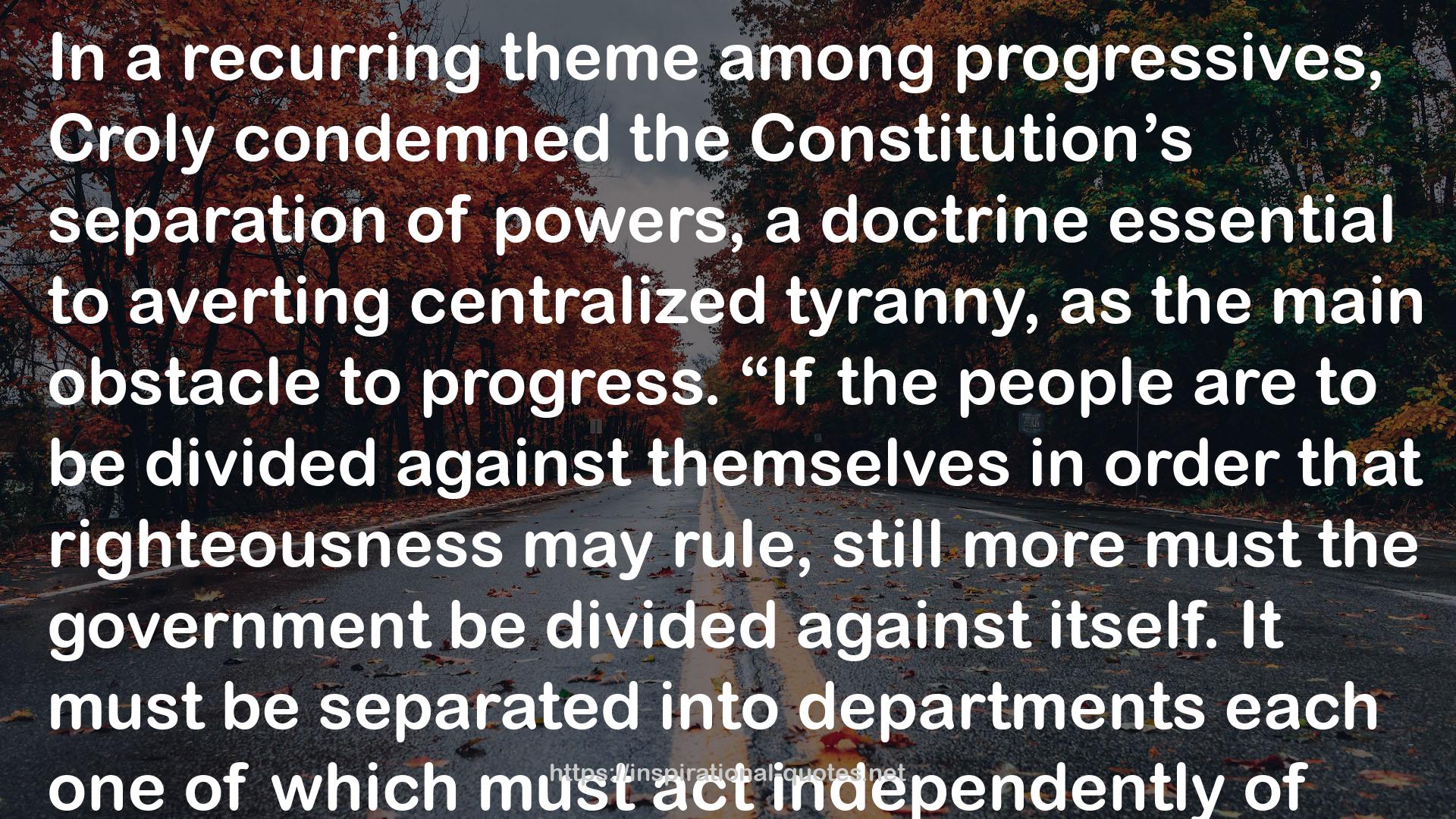" In a recurring theme among progressives, Croly condemned the Constitution’s separation of powers, a doctrine essential to averting centralized tyranny, as the main obstacle to progress. “If the people are to be divided against themselves in order that righteousness may rule, still more must the government be divided against itself. It must be separated into departments each one of which must act independently of the others. . . . The government was prevented from doing harm, but in order that it might not do harm it was deliberately and effectively weakened. The people were protected from the government; but quite as much was the government protected from the people. In dividing the government against itself by such high and rigid barriers, an equally substantial barrier was raised against the exercise by the people of any easy and sufficient control over their government. It was only a very strong and persistent popular majority which could make its will prevail, and if the rule of a majority was discouraged, the rule of a minority was equally encouraged. But the rulers, whether representing a majority or a minority, could not and were not supposed to accomplish "
― Mark R. Levin , Rediscovering Americanism: And the Tyranny of Progressivism
